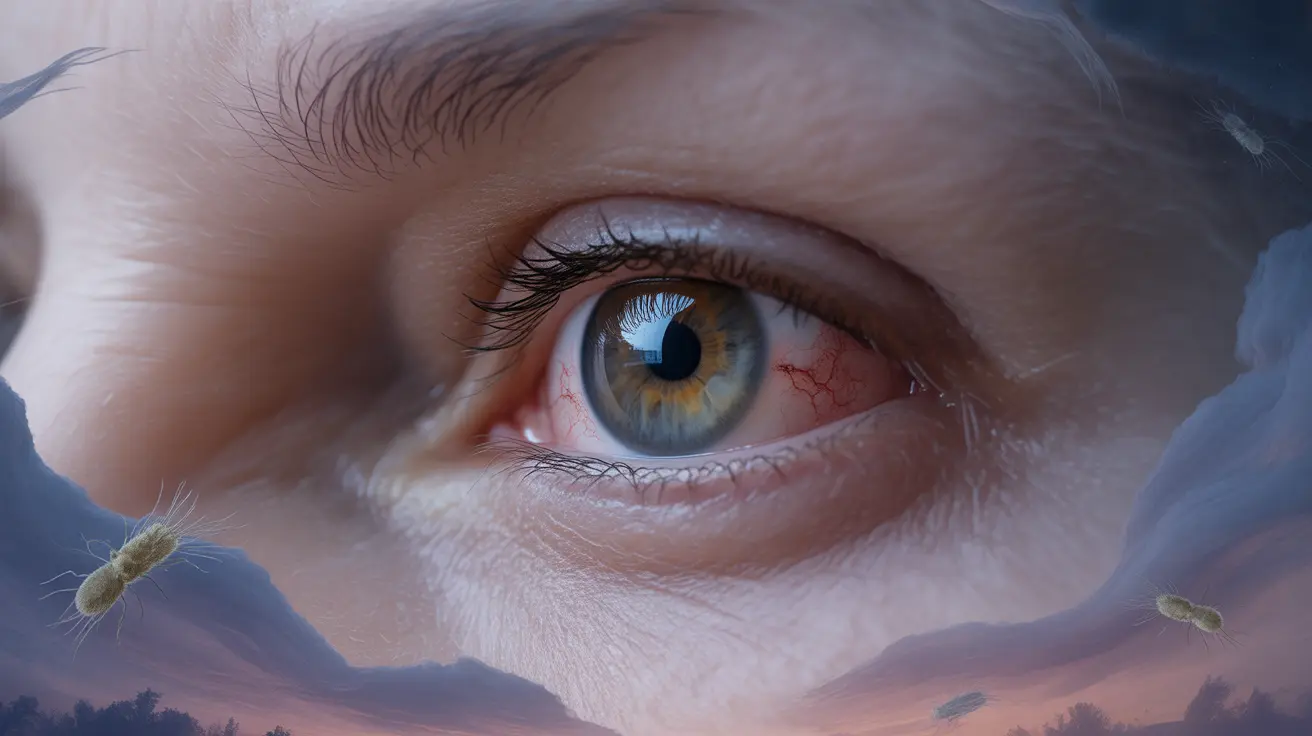If you've ever experienced the frustrating sensation of itchy eyes, particularly when trying to rest or upon waking, you're not alone. This common yet bothersome condition can significantly impact your sleep quality and overall eye comfort. Understanding why your eyes become itchy at night and knowing effective solutions can help you find relief and prevent future episodes.
Let's explore the various causes of nighttime eye itchiness and discover practical ways to address this irritating condition, from simple home remedies to professional treatment options when necessary.
Common Causes of Nighttime Eye Itching
Several factors can contribute to eyes becoming itchy specifically during nighttime hours:
Allergies and Environmental Factors
Allergens tend to accumulate in bedding and can trigger eye irritation when you lie down. Common culprits include:
- Dust mites
- Pet dander
- Pollen
- Mold spores
Eye Strain and Digital Device Usage
Extended screen time before bed can lead to digital eye strain, causing increased irritation and itchiness at night. The reduced blink rate while using devices can exacerbate dry eyes, making them more prone to itching.
Dry Eye Syndrome
Natural tear production often decreases during sleep, which can lead to increased eye irritation. This condition may worsen if you sleep with a fan or in a room with low humidity.
Treatment and Relief Options
Immediate Relief Measures
When experiencing itchy eyes at night, these solutions can provide quick comfort:
- Cool compresses
- Artificial tears
- Gentle eye massage
- Keeping eyes closed for several minutes
Medical Treatments
For persistent symptoms, various medical interventions may help:
- Antihistamine eye drops
- Prescription allergy medications
- Lubricating eye drops
- Anti-inflammatory medications
Prevention Strategies
Implementing these preventive measures can significantly reduce nighttime eye itching:
Bedroom Environment
- Use hypoallergenic pillowcases and bedding
- Maintain optimal humidity levels
- Keep windows closed during high pollen periods
- Regular cleaning of bedding and surrounding areas
Evening Routine Adjustments
Making simple changes to your nighttime habits can make a significant difference:
- Limit screen time before bed
- Practice proper contact lens hygiene
- Remove eye makeup thoroughly
- Use an air purifier in the bedroom
When to Seek Medical Attention
While occasional eye itching is usually harmless, certain symptoms warrant professional evaluation:
- Severe or persistent itching
- Eye pain or redness
- Changes in vision
- Discharge from the eyes
- Sensitivity to light
Frequently Asked Questions
What causes my eyes to feel itchy mainly at night or when I wake up?
Eyes often feel itchier at night due to accumulated allergens in bedding, decreased tear production during sleep, and potential eye strain from daytime activities. Environmental factors like dry air from heating or cooling systems can also contribute to nighttime eye irritation.
How can I relieve itchy eyes at night caused by allergies or dryness?
Apply cool compresses, use preservative-free artificial tears, and consider using an antihistamine eye drop if allergies are the cause. Maintaining proper humidity levels in your bedroom and using hypoallergenic bedding can also help provide relief.
What home remedies or lifestyle changes help prevent nighttime itchy eyes?
Regular cleaning of bedding, using an air purifier, maintaining proper humidity levels, and establishing a healthy digital device routine can help prevent eye irritation at night. Additionally, practicing good eye hygiene and using hypoallergenic products can reduce symptoms.
When should I see a doctor for persistent itchy eyes occurring at night?
Consult a healthcare provider if you experience severe or persistent itching, eye pain, vision changes, unusual discharge, or if symptoms don't improve with home remedies. These could indicate an underlying condition requiring medical treatment.
Can using screens or contact lenses before bed make my eyes itch worse at night?
Yes, extended screen time can reduce blink rate and cause eye strain, leading to increased irritation. Wearing contact lenses for too long or sleeping in them can also contribute to eye discomfort and itching. It's recommended to limit screen time before bed and remove contact lenses as directed by your eye care professional.




